It’s very likely you’ve seen adverts for Photzy Action Cards on your social media timelines. The idea behind the cards is to drag us out of the classroom and get us taking photos.
And Photzy wants us to take their action cards with us so that we learn as we shoot. They’re not a replacement for extensive courses, but they aren’t meant to be. They are meant to get us shooting and learning at the same time.
Our review of these Photzy Action Cards will give you an honest appraisal of their strengths and weaknesses. And we’ll let you know if we think they are good value for money. Read on to find out!
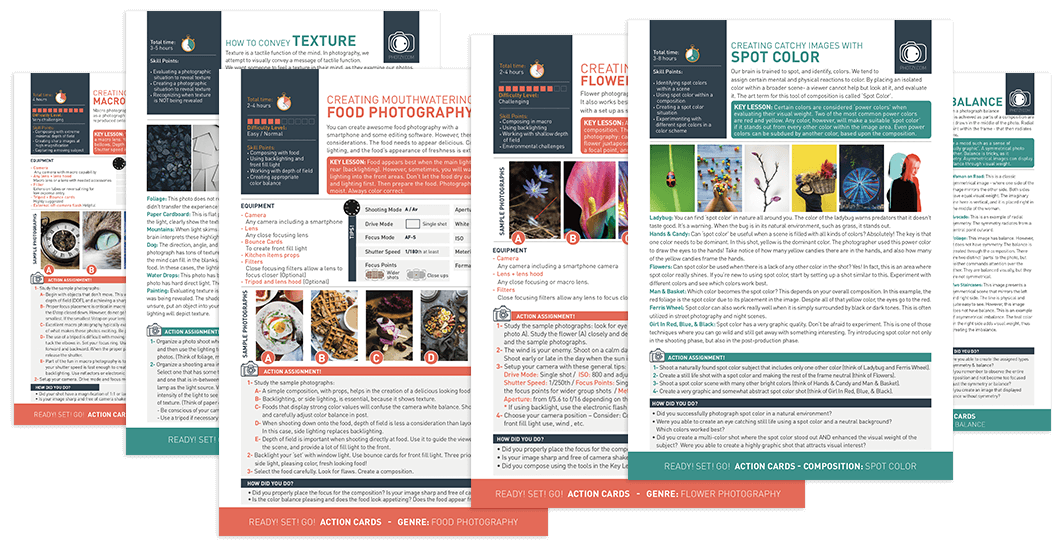
What Are the Photzy Action Cards?
Photzy is a photography community that provides its users with helpful tutorials.
Their cards help photographers on the go. They are .pdf files, which you can either print or download on any device.
They cover a variety of topics and genres (architecture, maternity, and macro, to name a few).
The explanations and assignments in the cards are all very straightforward. They’ll work for both beginners and intermediate photographer.
Action Cards Set
You pay $39 for 65 action cards and 200 assignments.
Upon purchasing the action cards, you’ll receive 3 .pdf files:
- Genre Set
- Composition Set
- Lesson Plan (free bonus)
You can also buy the Stretch Goals set at an extra cost.
This is full of photography challenges. It’ll encourage you to embrace your creative ideas and more.

The Genre Set
The genre set focuses on 31 different genres. These include bird, couple, food, and still life photography.
You’ll learn what equipment to use, how to choose the right camera settings, and how to study professional photographs.
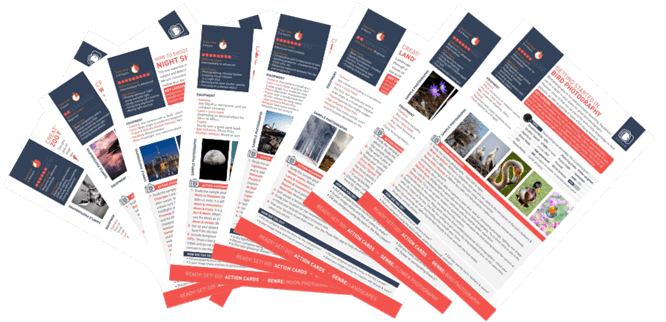
The Composition Set
The composition set aims to improve photographers’ knowledge of lines, angles, and colors.
It covers topics like depth of field, juxtaposition, and motion.
Each card will encourage you to study a variety of compositions. And to find their strengths and weaknesses.
Then, you can use your newfound knowledge to perfect your own work.
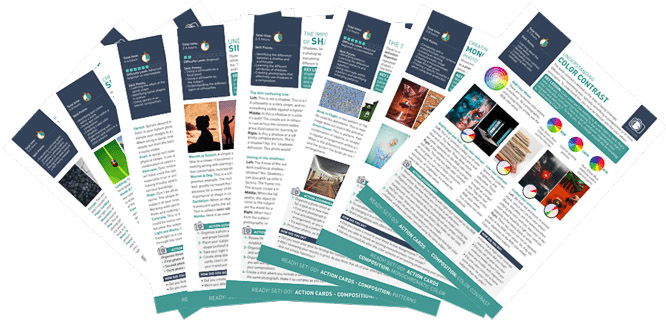
The Stretch Goals Set
‘Stretch Goals’ will improve your (creative) flexibility. With a few exceptions, the cards go from challenging to very challenging.
You’ll learn about moods, the golden spiral, focus stacking, and more. Each card comes with equipment tips and assignments.
These will challenge you to have very specific photoshoots.
For example:
“Organize a photo shoot where you will go in search of subject matter that you believe will make interesting Litho Film Effect photos. Create at least 10 different photos with 10 different subjects.”
The Lesson Plan
The lesson plan is a bonus file. It’s as valuable as the action cards. It will introduce you to two main types of photographers: method and flexible.
Using the instructions in the plan, you’ll gain a better understanding of your style.
And you’ll get tips on which action cards to refer to when you feel like strengthening your skills.
Information Included
Every action card includes:
- Total time needed to complete the task
- Sample photos that highlight mistakes and strengths
- Instructions and tips
- Action assignments that will strengthen the information you learn
- Self-evaluated questions (e.g. “Are your leading lines easily noticeable?”)
Technical terms, like depth of field, have explanations at the top of every card. The language is simple.
This makes these cards ideal for all levels. From beginner to intermediate photographers.
Format
You should print the cards on A5 paper. Other formats – like A4 – are also acceptable, as the cards have a high enough resolution. The suggested format will take up less space in your bag (or pocket) and provide you with the most important tips.
This means that you don’t have to carry a thick photography book or magazine with you. Instead, you can pull out your cards and study them for a few minutes. Then you can get back to what matters most: your photography.
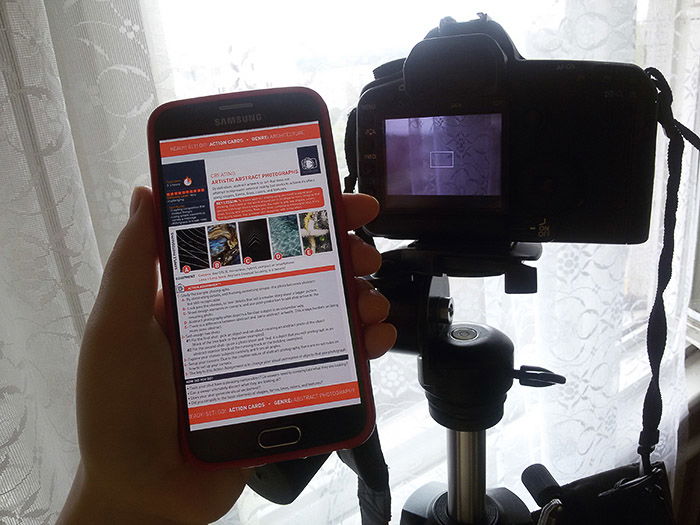
Disadvantages and Alternatives for Printing
The disadvantages of having 65 action cards are the printing process and costs.
Most stores don’t have A5 printers. Also, the colorful designs will cost more to print. I’d rather spend that printing money on something else.
There is an alternative solution. You can save the PDF sheets on your phone and consult them when you have spare time. Downloading the files won’t take any time at all. And it will guarantee that your guide will be with you wherever you go.
Make sure you charge your phone before you go out or else you’ll lose access to valuable tips.
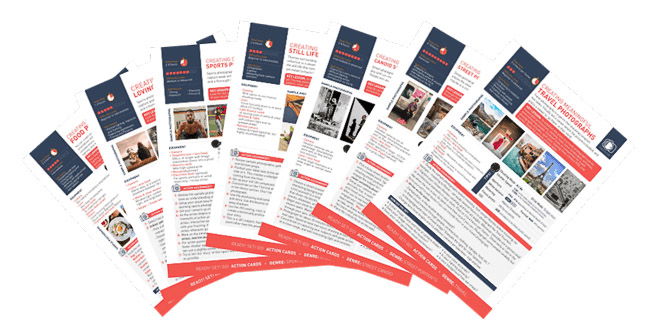
Alternatives
Photzy’s Action Cards are a one-of-a-kind product, as far as I know (please leave a comment if you know an alternative!).
This is probably because most educators don’t realise the potential in such a format.
I wouldn’t say that the concept is revolutionary, but it is innovative and can work well for aspiring photographers.

Things We Liked
In Photzy’s Action Cards, everything leads to what matters most: action.
The photo assignments are straightforward but challenging. They’re not simple instructions that will leave you feeling inexperienced.
Many assignments will encourage you to study someone else’s images. You can learn from their strengths and weaknesses and create your own masterpieces.
The best thing about the Photzy action cards is their diversity. They cover 31 genres and a rich variety of compositions (e.g. lines of sight and the rule of odds).
It’s very likely that you’ll notice a change in your work after you study them.
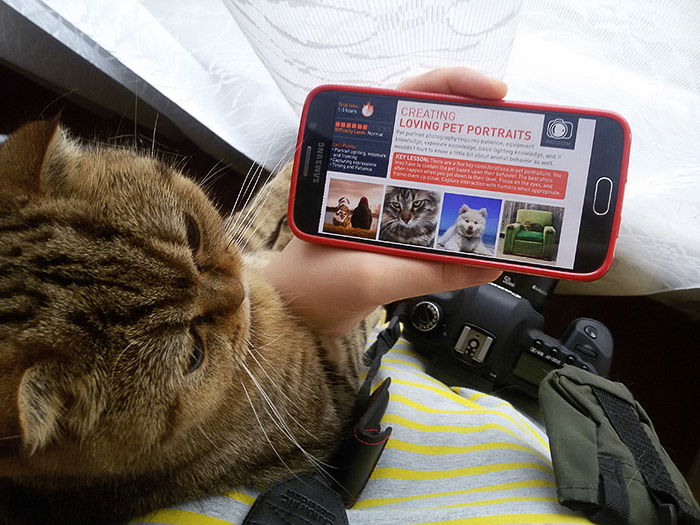
Areas for Improvement
Printing Format
Some photographers might find it hard to print A5 cards. I’d have liked to see an A4 version (two A5 cards in one) available. Then, anyone could print the cards on normal sheets of paper. Right now, it requires specific software knowledge to do so.
It’s also quite expensive to properly print them.
Difficulty Levels and Time Estimates
I’ve found that the difficulty levels and time estimates on each of the cards are not so accurate.
Take this example below. Depending on your choice of software and skill level, it might take you 10 minutes to create a simple composite. At the other extreme, I sometimes spend many hours on a composite image. Truly mastering the process can take much longer than the 4-6 hours indicated.
These values can vary a great deal, depending on the individual.
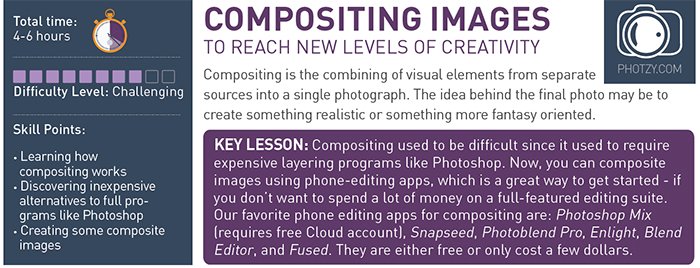
Another example is the 500 Rule. This simple equation is marked as the highest difficulty. But another simple equation, the reciprocal rule, is at the lowest difficulty level.
For this reason, you should take the difficulty levels and time estimates with a pinch of salt.
Page Numbering and Table of Contents
Having a page numbering system would have been highly beneficial. Right now, you have to scroll through every card if you search for something specific in the cards.
A table of contents summarising the 31 cards would also make navigation easier.
Conclusion
You should not use these cards to replace more serious learning material. But they are great for on-field practice and motivation.
The quality of Photzy products can fluctuate a lot. In this instance, they’ve put together something practical and great.
Grab yours right here.
Scores
To standardise and compare our product reviews, we’ve decided to use a scored-based ranking system. To learn more about interpreting these numbers and how other courses measure, please visit our review roundup page here.
| Measurement |
Measurement
Score
|
| Coverage |
Coverage
|
| Accuracy |
Accuracy
|
| Ease of Learning |
Ease of Learning
|
| Production Value |
Production Value
|
| Uniqueness |
Uniqueness
|
| Value for Money |
Value for Money
|
| Total Score |
Total Score
|
